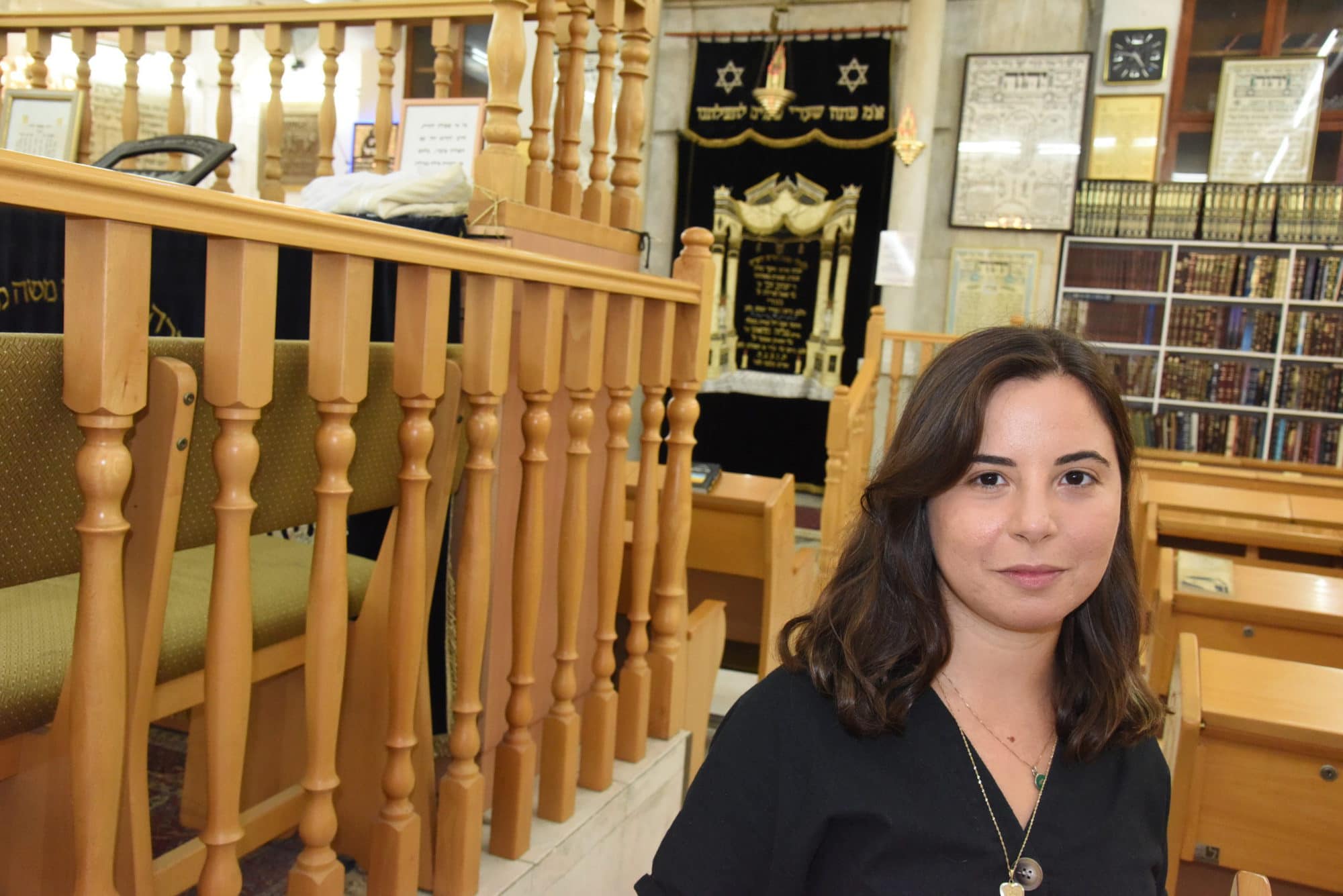2021 Featured Activists: Brit Yakobi
(Part One)
Meet Brit Yakobi, Director of Religious Freedom at Shatil
How does someone go from being a branch head of Likud Youth to running the Religious Freedom and Gender department at Shatil, New Israel Fund’s (NIF) action arm in Israel?
Brit Yakobi, 30, doesn’t see a contradiction.

“From a young age, I was concerned with justice and with the connection between religion and state, which I realized hurt Judaism,” she says. “I saw that Israel is the only country in which Jews can’t marry the way they want and that women can’t divorce without the man’s consent. I was disturbed by accounts of agunot and attended conferences of Mavoi Satum.
Under Israel’s state religious courts, only the husband can grant a divorce and many women remain agunot (“chained”) to their marriage without recourse. Secular and religious women are both victim to this situation, making orthodox feminist legal groups like Mavoi Satum leaders in the fight for women’s rights.
“There are disputes in halacha about this, but the rabbis adopted one stance…I wanted to know how we could live a Jewish life in Israel without violating women’s rights…”
From Likud Youth to New Israel Fund Staff
Brit grew up in an ideological, right-wing, religious Mizrachi home in Tel Aviv and Ramat Gan. Her family brought her up on books by Menachem Begin and Ze’ev Jabotinsky. Today, they support her work, even if they don’t always agree with it, she says.
Brit was a company commander in the IDF Education Corps, where she was in charge of a course for 150 soldiers and realized that she liked working in education and managing people. She has a B.A. in Talmud and is finishing an M.A. in Jewish and gender studies. One of her jobs post-army was on religion and state issues for Jewish Pluralism Watch of the Israeli Masorti movement, funded by the NIF global network. She’s also passionate about Jewish culture and founded Free Space, a project that runs Jewish cultural events in abandoned synagogues in Tel Aviv. That comes from the same impetus as her work for separation of religion and state, she says – a desire to see a fresh, young, radical Judaism expressed in the public sphere.
Brit sees her work on religion and state and on gender as part of the larger issues of equality and democracy and feels privileged that NIF gives her the opportunity to work on the issues she cares about within a wider context.
“It opened me to more worlds and more issues,” she says.
Religiously traditional with a strong love of Judaism, Brit doesn’t see her religious freedom work as an effort to dismantle the rabbinate but rather as an effort to work with all sectors of the religious population for religious freedom, including Haredim and religious Zionists.
“Many people frame the religion and state controversy as a struggle between the religious and the secular, but that is incorrect,” she says.
Leading Twenty Organizations Against the Exclusion of Women
Brit believes in making connections between groups, people, and struggles – making Shatil a perfect workplace. Shatil is known simply as NIF’s “action arm” in Israel and is perhaps best known for providing training to civil society groups. But Brit’s role actually puts her on the front lines of social change and makes her a central organizer in the fight for religious freedom and gender equality.
For example, the NIFC-funded Forum against the Exclusion of Women that she leads has 20 member organizations — Reform, religious Zionist, Palestinian, and Haredi women who fight together against a phenomenon that hurts them all. Together, these 20 groups become greater than the sum of their parts.
LGBTQ people develop organizations to help in their struggle for rights and equality.
“All the research shows that the public is on our side on these issues,” she says. “Israelis want equality between men and women, public transportation on Shabbat, and civil marriage and divorce. There is a big gap between what the public wants and what politicians say the public wants…
“The current connection between religion and state hurts women in a total way. There is no other way to look at it.”
In a new endeavor, Brit is working to bring more traditional Mizrachi voices into the world of human rights, for example by having members of this community write op-eds on issues such as democracy, social justice, the environment, and religion and state from a religious perspective.
“It’s part of my mission to connect the world I come from,” she says, “to the world I’m in.”
Increased Hope for Change
Bringing together disparate groups to work on common issues gives Brit hope.
“A lot of the things we do at NIF today look small, but they are part of processes of real change that take years,” she says. “Years ago, Shatil and NIF began working on the issue of religious LGBTQ people when they were totally unaccepted in the religious world. Today, it’s in the public discourse of every religious community. We have the privilege of being in on the beginning of things…
“I believe in the potential of this nation. We can’t give up on that potential even in the toughest days when corruption is everywhere and the nation seems headed towards racism and violence…
“We face a lot of adversity. People incite against our organizations, there is little legitimacy for our work and sometimes all this seeps into us. Our opponents want us to despair, and sometimes we do. But we have to keep the belief that we can make change.
“My grandparents immigrated to Israel in order to make it a better place. I am continuing their mission.”
Written and reported by Ruth Mason.
Get updates in your inbox
Sign up for our email newsletter and receive the latest news, invitations to events, and progress updates.
